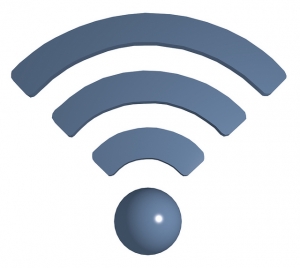
Whether for work, school or leisure, the Internet is now an essential part of life. Most people cannot imagine life without access, yet one out of every four homes in America cannot connect to the Internet. This creates the Digital Divide – a huge disparity between those with Internet access and those without it.
Cities and states throughout the U.S. realize what negative outcomes result for people with no access, so public officials have stepped forward to find ways to provide free, municipal Wi-Fi networks. Many of the projects are accomplished through public-private partnerships (P3s/PPPs).

Photo by Fut Und Beidl is licensed under CC BY 2.0
The largest effort is taking place in New York City, where a public-private partnership known as LinkNYC is converting between 7,500 and 10,000 phone booths into free Gigabit Wi-Fi hotspots across all five of the city’s boroughs. The hotspots, which offer speeds of up to 100 times the average household Wi-Fi, will provide access to the Internet within a 150-foot radius. The access is free to the public. Additional features include free domestic calling, two USB charging ports, a tablet for web browsing, two screens to display advertisements and a 911 button in case of emergency.
Not only will LinkNYC be an incredibly wonderful asset for New York residents, it will again demonstrate the true power of public-private partnerships. Revenue will be generated from advertisements and produce more than $500 million annually – some of which will go to the city and the rest will help repay the capital invested by the private-sector partners. A consortium of companies known as CityBridge is developing the LinkNYC system and will operate it when it is completed.
Other cities are also using P3s/PPPs to develop Wi-Fi networks. Seattle’s mayor recently announced that because his initial plan to develop a citywide Wi-Fi network was financially restrictive, a public-private partnership would be formed to implement the service. The municipal Wi-Fi network will cost between $480 million and $665 million. Seattle was determined to find a way to fund the project because it would serve 93,000 homes, approximately 15 percent of the city’s residents. Additionally, through a P3/PPP model similar to that in New York, Seattle could eliminate the need for a tax increase and still provide the service.
Washington, D.C., is also in the preliminary stages of proposing a municipal Wi-Fi network for the district. In March, a task force began to generate recommendations for how to implement the project. The district currently provides 13 percent coverage under its existing wireless hotspot system, but it wants to expand to 24 percent coverage by 2018. Many of the current hotspots are concentrated in municipal buildings, such as libraries and community centers. The Washington, D.C., model is different from that of New York or the plan in Seattle, as it is designed and operated through the district’s Office of the Chief Technology Officer. However, a potential district-wide system may be financed through a public-private partnership.
Boston’s municipal Wi-Fi system is operated by the city, and although there are no announced plans for an expansion, the city will greatly increase the number of free hotspots it currently offers. The city plans to use federal grant money to expand the network over all 20 of Boston’s commercial districts in the Main Streets neighborhoods. That area was selected to benefit from a public-private coalition to revitalize the neighborhoods.
Watch for other cities to follow this trend. Municipal Wi-Fi networks are critical components of vibrant neighborhoods and cities cannot remain competitive without them. Private-sector partners are joining forces with public officials to fund a large percentage of the initiatives. Successful collaboration on projects that benefit citizens and taxpayers – a game changer for sure!
SPI’s team of government procurement experts can help grow your business. Contact them today.
